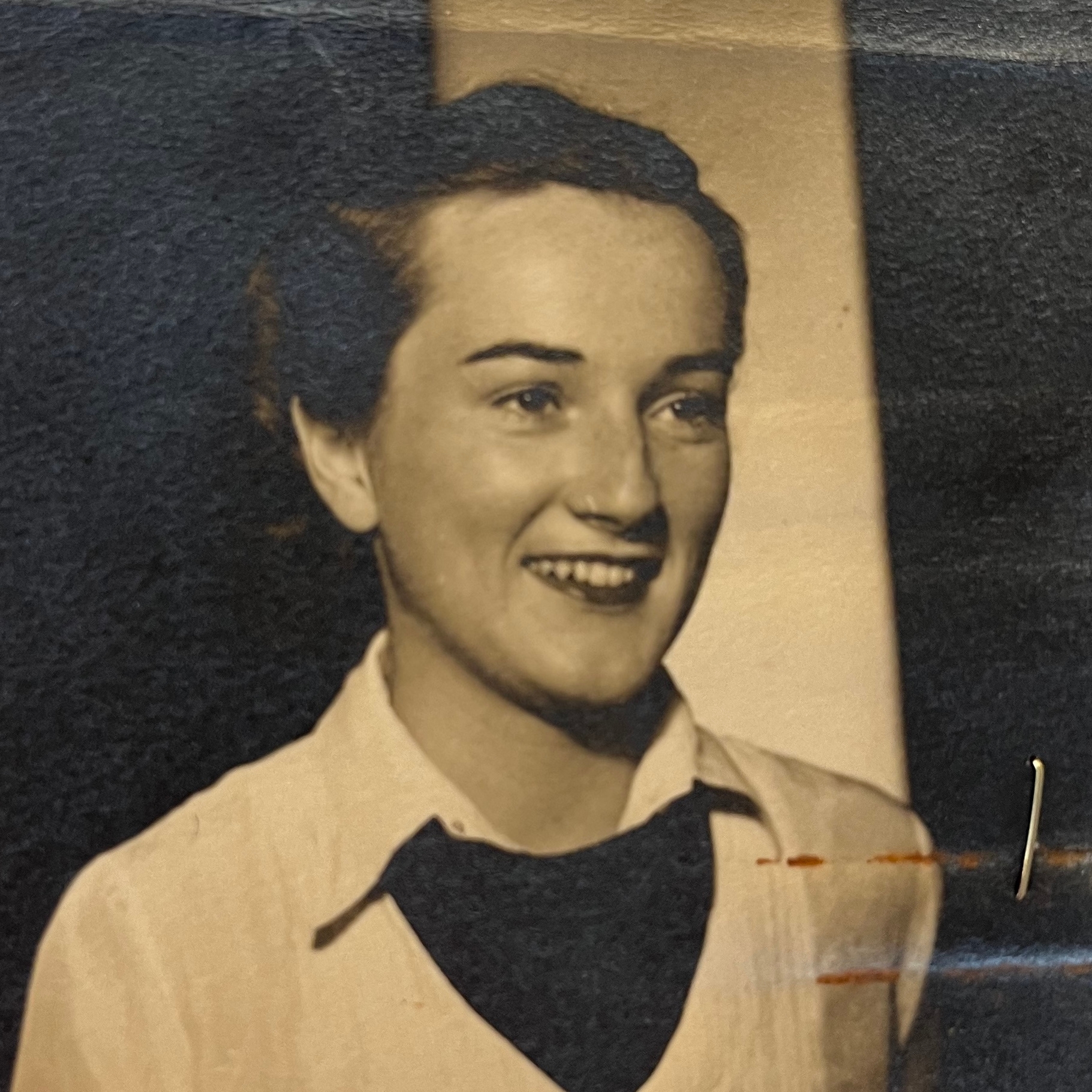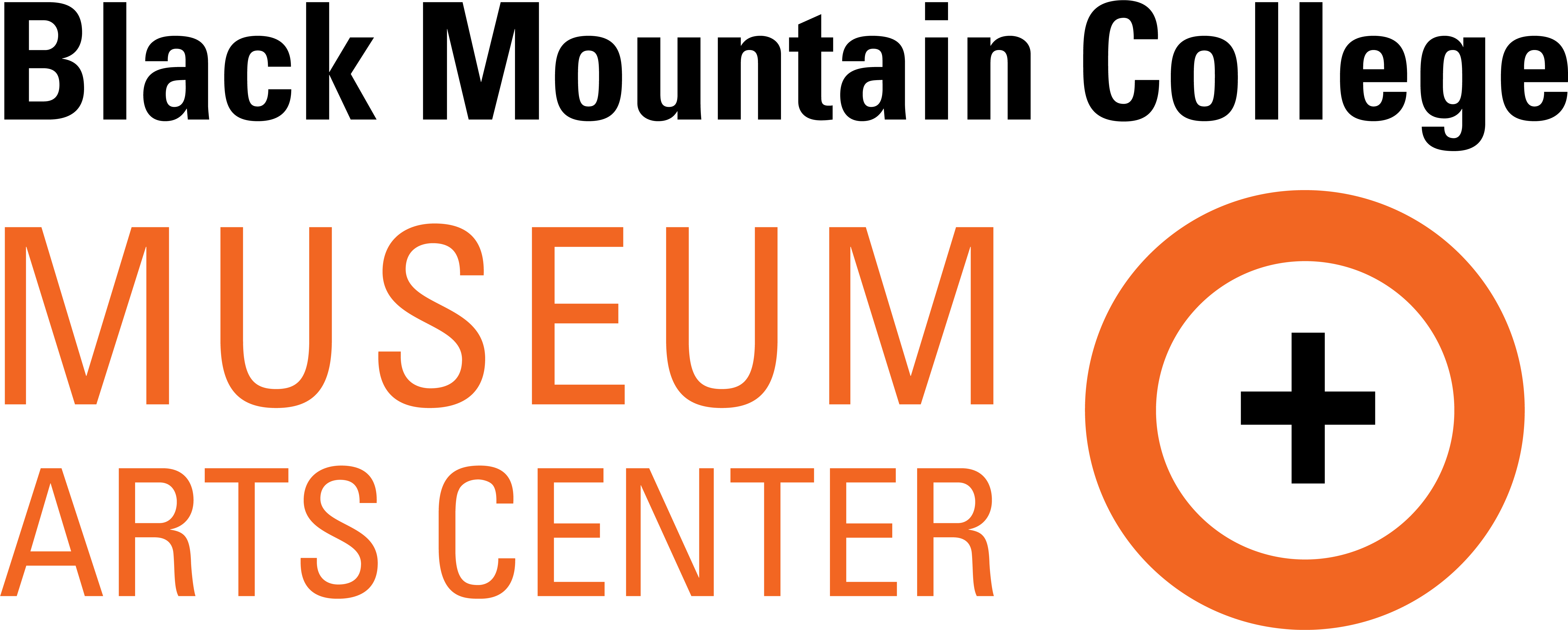Barbara Hill

Photograph included with student application. Courtesy of Western Regional Archives
Courtesy of Western Regional Archives
FOCUS
Art/ Design/ Craft
ROLE
Student
ATTENDANCE
1937 - 1942
BIRTH
1920-03-24
Boston, MA
DEATH
2013-12-02
Early Education
Barbara Hill Steinau (Barbara Hill while at BMC) graduated from high school in Laguna Beach, California in 1937. She recalled that even then she "tended to do things differently from other people" and was not interested in attending the large universities to which most of her friends were applying. When she read the condensed version of Louis Adamic’s article "Education on a Mountain" in Reader’s Digest, she felt she had found the right place. At the time three thousand miles was much further than now, but she liked being far from home. Though an "A" student and high school leader, she was quite shy on a "one-to-one" basis, and she felt that at such a distance she could "be a different person."
At Black Mountain
Steinau took a general curriculum including art, music, literature, John Rice’s Plato class, sociology, biology, drama, psychology, and anthropology. She passed the Senior Division examination and considered studying linguistics. When informed that she was ill-prepared, having never studied Latin, she chose instead to major in psychology.
For her work program assignment Steinau recalled that she worked in the college store. She initiated an "honor system" by which the cash register would be left open, and the store would not be have to be constantly staffed. Both angry and disillusioned that someone was stealing from the store, she launched an investigation – she thinks they maybe took fingerprints – but could not nail the culprit. She also helped with the Studies Building construction and worked on the farm.
Once she arrived at Black Mountain, Steinau did not return home for two years. In the intervening summer, she worked as a "waitress" and "chambermaid" at the Lake Eden Inn, the summer resort which the college operated on the Lake Eden property until it moved there. That summer she learned bookbinding and also worked with David Way and Emil Willimetz who set up the college press in the Lake Eden Gatehouse and ran a commercial press. She recalled that they printed Steven Forbes’s graduation paper as well as flyers and books.
Marriage & Family
In the summer of 1939 Barbara Hill married Morton Steinau, a student who had graduated and been appointed Assistant Treasuer. After their daughter Joan was born in May 1940, she continued to take classes. She recalled that it was an ideal situation because she did not have to prepare meals and there were plenty of students willing to care for the baby while she attended classes.
In January 1943, with Pete, their second of their three children due, the Steinaus decided that it was time to leave their "ivory tower." They moved to Philadelphia where Morton Steinau worked as traffic manager in the production department of Time/Life. After a year, they moved to Palmyra, New Jersey where they lived for nine years when they moved to Connecticut.
Career
Barbara Steinau began her career in early childhood education in Philadelphia as an assistant at the Quaker kindergarten where Joan was enrolled. When the family moved to Killingworth, Connecticut, Steinau recalled that her youngest daughter Mardi was devastated that there was no kindergarten. To solve the problem she founded a cooperative nursery school and kindergarten for the Killingworth Kindergarten Association where she worked for seven years until public kindergartens were opened and the cooperative closed.
For seventeen years Steinau taught at and directed the Gesell Institute Nursery, founded by Arnold Gesell. When the nursery closed, she taught at a preschool at the Connecticut Hospice, the first free-standing hospice in the United States. The preschool which was organized for children of hospital workers was also attended by community children. Steinau felt a that for the children a brief connection with people who were dying helped prepare them for the deeply-felt losses they would experience later in their lives. She recalled that it was also good for the patients who responded readily to the children’s frank questions about their illnesses and the contraptions that were used to sustain their lives.
Steinau recalled that both New Haven schools had been closed partially as a means of eliminating her since she was too popular for a proper firing. The independent thinking – "a kind of questioning and wondering and figuring out and not necessarily believing what's said out there, but checking it out" – that had been "cultivated and supported" at Black Mountain often lead to trouble with administrators. She said of the Black Mountain influence on her teaching that all too often the classroom is controlled by the idea that "the teacher's got information that's going to get into those children's heads. What I saw my role as was to be there as support and encouragement and assistance, exposing them to ideas and materials, and letting them go with it. My role aside from the exposing was to be there to set some limits and help them understand the limits, but not this my-head-to-their kind of thing."
When the hospice school closed, Steinau was seventy years old. For five years the Steinaus had lived at the East River Farm, a commune in Guilford, Connecticut. They then moved to Cape Cod just as the Gulf War was "beginning to brew." They immediately organized a vigil which Steinau recalled was an excellent way to get to know the community. On the Cape, they have organized a bartering coop and remained politically active, protesting war, the military and bigotry in its many forms. They rent their house in the summers and camp at sites in Canada and the United States.
Biography written by Mary Emma Harris for the Black Mountain College Project.
Alternative Names: Barbara Steinau
Relationships:
Husband: Morton Steinau
Brother: Peter Jack Robbins Hill
Asheville Art Museum Collection
Writings about Barbara can be seen in digitized college bulletins on Asheville Art Museum's collection website: collection.ashevilleart.org. They can be found by searching these accession numbers:
2017.40.022 April 1943 bulletin,
"Born to Mr and Mrs Morton Steinau on March 20 a son. He has been named Peter."
Black Mountain College Project
Mary Emma Harris interviewed Barbara in 1997 and the transcript is available from Appalachian State University under The Mary Emma Harris and Black Mountain College Project, Inc. Oral History collection.
Topics: Hearing about BMC and travel from California – initial impression of college – description of Lee Hall – John Rice’s “Plato” class – Josef Albers art classes – general liberal arts curriculum – informality of classes – senior division exam – Josef Albers as community member – college dances and parties – William McCleery play – Lake Eden Inn – printshop and bookbinding – David Way – Jack and Rubye Lipsey and mealtimes – being a mother at BMC – death of Mark Dreier and Frank Nacke – catching the BMC thief – BMC rules – effect of no grades – work program – Studies Building construction – Ted and Barbara Dreier – post-BMC professional work – assessment of BMC as educational venture

